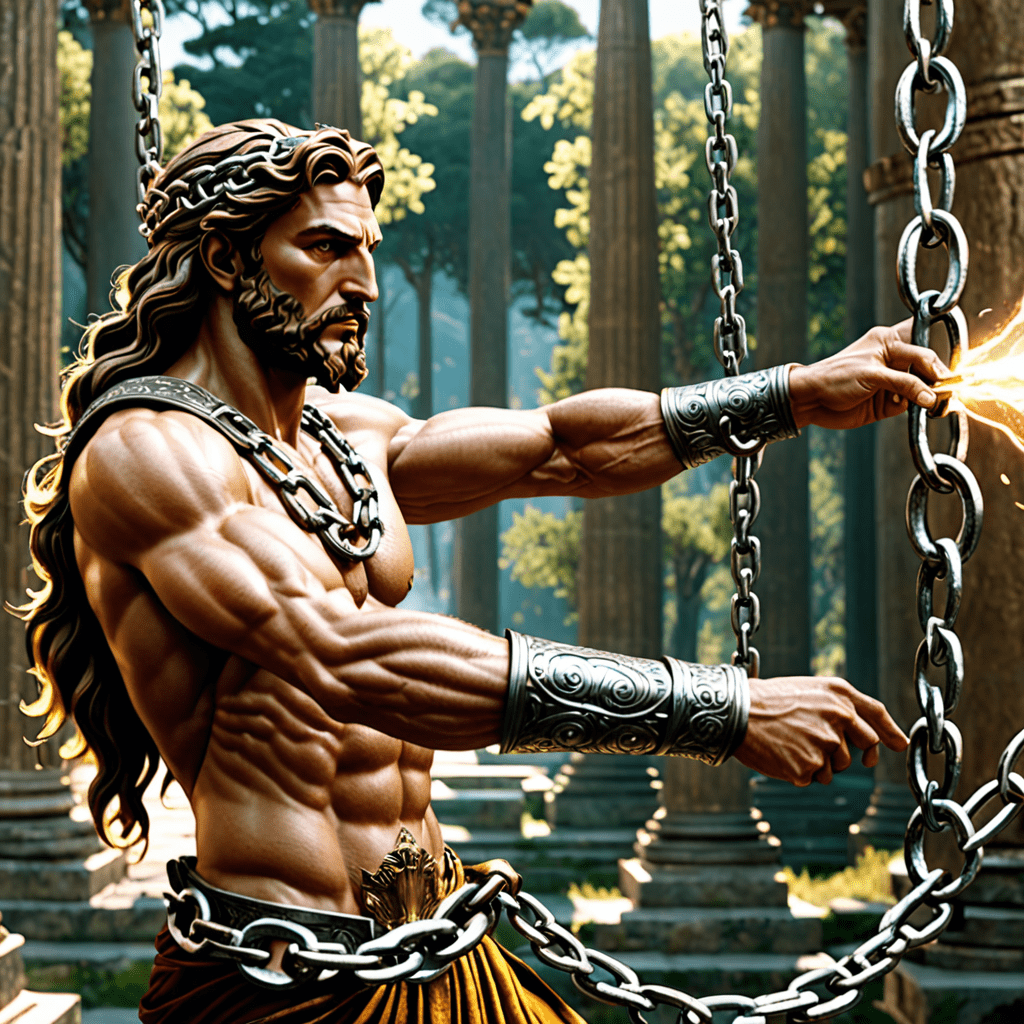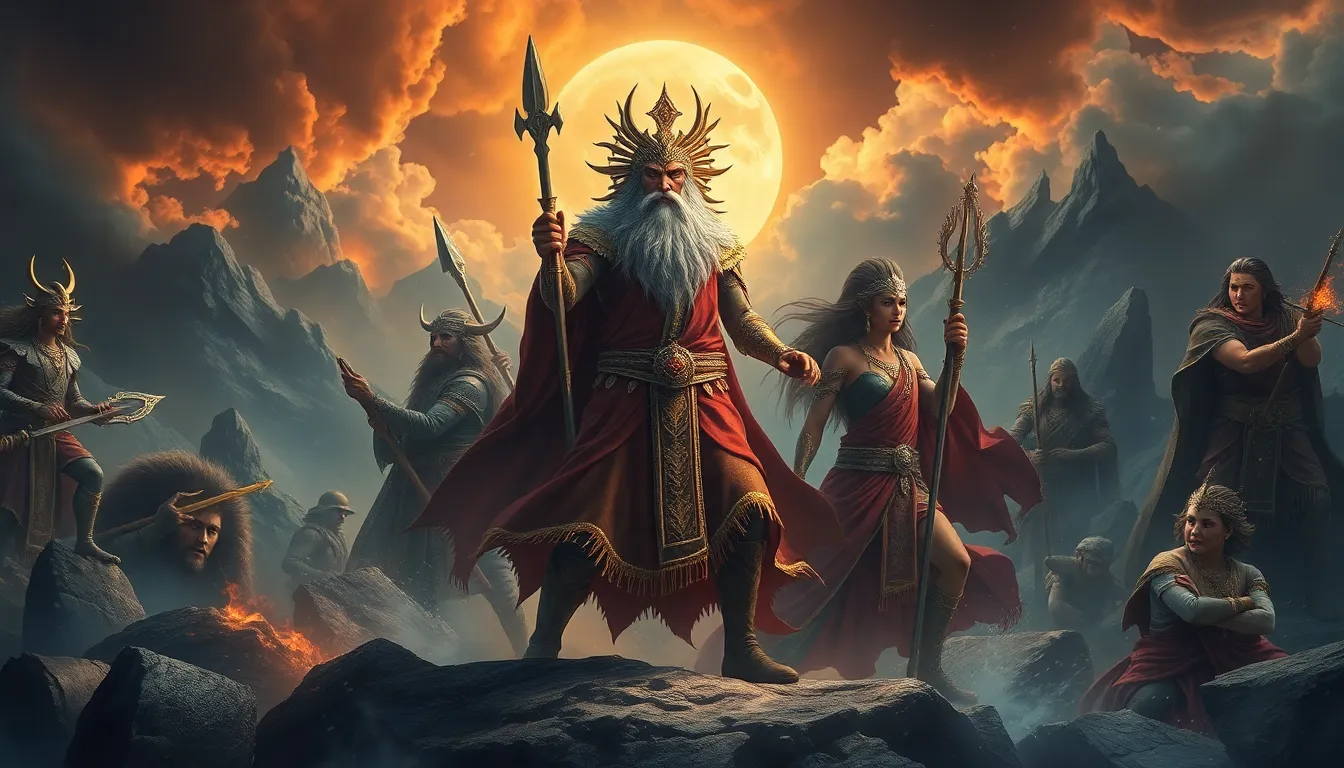The Symbolism of Chains in Greek Mythology
Introduction: Understanding the Significance of Chains in Greek Mythology
Chains hold a deep symbolic meaning in ancient Greek mythology, often representing different aspects such as power, imprisonment, and fate. Greek myths are rich with stories where chains play a pivotal role in shaping the destinies of gods, goddesses, heroes, and mythical creatures.
The Myth of Prometheus and His Chains
One of the most famous tales involving chains in Greek mythology is the story of Prometheus. According to the myth, Prometheus, a Titan who sided with Zeus during the Titanomachy, stole fire from the gods and gave it to humanity, granting them knowledge and foresight. As punishment for his defiance, Zeus ordered Hephaestus to chain Prometheus to a rock where an eagle would eat his liver daily, only for it to regenerate each night. The chains symbolize both the eternal suffering of Prometheus and the struggle to defy the gods.
The Chains of Fate: The Story of Andromeda
In the myth of Andromeda, the mortal princess was chained to a rock as a sacrifice to appease a sea monster sent by Poseidon as punishment to her mother, Queen Cassiopeia. However, Perseus, the son of Zeus, rescued Andromeda, defeating the monster and ultimately marrying her. The chains in this story symbolize the concept of fate and destiny, as Andromeda’s chaining leads to her fated encounter with Perseus.
The Binding of Typhon: Chains as Symbols of Containment
In another myth, the giant serpent-like monster Typhon challenged Zeus for control of the universe. After a fierce battle, Zeus defeated Typhon and imprisoned him beneath Mount Etna by using chains forged by the Hundred-Handed Ones. The chains symbolize the gods’ power to contain and control chaos, emphasizing the concept of order prevailing over chaos in Greek mythology.
Chains in Greek mythology serve as potent symbols that embody themes of punishment, defiance, fate, and power. Understanding the significance of chains in these myths provides valuable insights into the ancient Greeks’ beliefs, values, and understanding of the forces that shape the world and the lives of gods and mortals alike.

FAQ: The Symbolism of Chains in Greek Mythology
What do chains symbolize in Greek mythology?
Chains in Greek mythology often symbolize imprisonment, control, and restriction. They are used to depict the power dynamics between gods, humans, and other beings in various myths.
Which Greek myths prominently feature chains?
Prometheus bound in chains by Zeus, Andromeda chained to a rock as sacrifice, and the binding of Fenrir by the gods with unbreakable chains are some popular myths showcasing the symbolism of chains.
What is the significance of chains in the story of Prometheus?
In the myth of Prometheus, chains represent the consequences of defiance and the struggle for freedom. Prometheus, punished for giving fire to humanity, is chained to a rock where an eagle eats his liver daily, symbolizing eternal suffering and the price of rebellion.
How do chains symbolize fate and destiny in Greek mythology?
Chains in Greek mythology also represent the inexorable nature of fate and destiny. Characters bound by chains often find themselves unable to escape their predetermined outcomes, underscoring the idea of predestined paths in the ancient Greek belief system.


